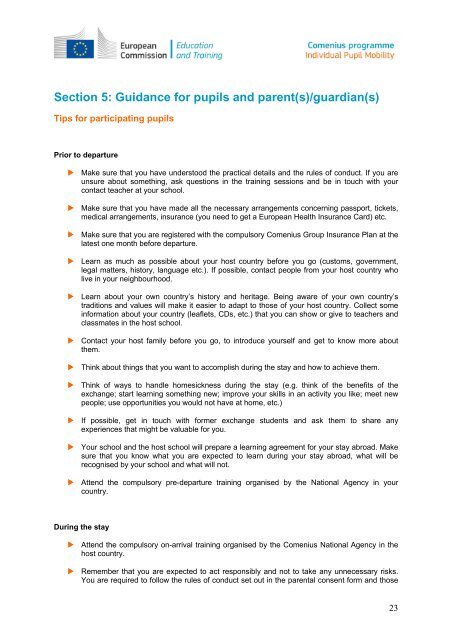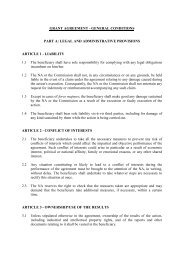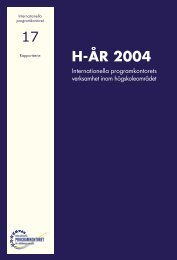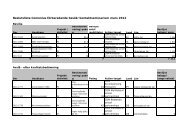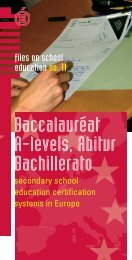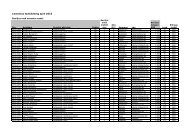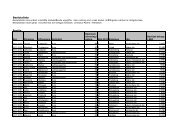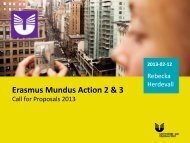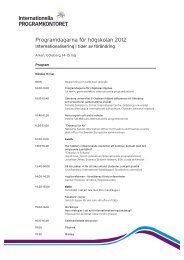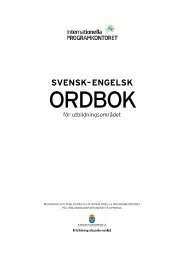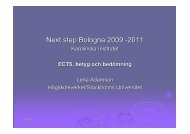Guide to Comenius Individual Pupil Mobility - European ...
Guide to Comenius Individual Pupil Mobility - European ...
Guide to Comenius Individual Pupil Mobility - European ...
You also want an ePaper? Increase the reach of your titles
YUMPU automatically turns print PDFs into web optimized ePapers that Google loves.
Section 5: Guidance for pupils and parent(s)/guardian(s)<br />
Tips for participating pupils<br />
Prior <strong>to</strong> departure<br />
Make sure that you have unders<strong>to</strong>od the practical details and the rules of conduct. If you are<br />
unsure about something, ask questions in the training sessions and be in <strong>to</strong>uch with your<br />
contact teacher at your school.<br />
Make sure that you have made all the necessary arrangements concerning passport, tickets,<br />
medical arrangements, insurance (you need <strong>to</strong> get a <strong>European</strong> Health Insurance Card) etc.<br />
Make sure that you are registered with the compulsory <strong>Comenius</strong> Group Insurance Plan at the<br />
latest one month before departure.<br />
Learn as much as possible about your host country before you go (cus<strong>to</strong>ms, government,<br />
legal matters, his<strong>to</strong>ry, language etc.). If possible, contact people from your host country who<br />
live in your neighbourhood.<br />
Learn about your own country’s his<strong>to</strong>ry and heritage. Being aware of your own country’s<br />
traditions and values will make it easier <strong>to</strong> adapt <strong>to</strong> those of your host country. Collect some<br />
information about your country (leaflets, CDs, etc.) that you can show or give <strong>to</strong> teachers and<br />
classmates in the host school.<br />
Contact your host family before you go, <strong>to</strong> introduce yourself and get <strong>to</strong> know more about<br />
them.<br />
Think about things that you want <strong>to</strong> accomplish during the stay and how <strong>to</strong> achieve them.<br />
Think of ways <strong>to</strong> handle homesickness during the stay (e.g. think of the benefits of the<br />
exchange; start learning something new; improve your skills in an activity you like; meet new<br />
people; use opportunities you would not have at home, etc.)<br />
If possible, get in <strong>to</strong>uch with former exchange students and ask them <strong>to</strong> share any<br />
experiences that might be valuable for you.<br />
Your school and the host school will prepare a learning agreement for your stay abroad. Make<br />
sure that you know what you are expected <strong>to</strong> learn during your stay abroad, what will be<br />
recognised by your school and what will not.<br />
Attend the compulsory pre-departure training organised by the National Agency in your<br />
country.<br />
During the stay<br />
Attend the compulsory on-arrival training organised by the <strong>Comenius</strong> National Agency in the<br />
host country.<br />
Remember that you are expected <strong>to</strong> act responsibly and not <strong>to</strong> take any unnecessary risks.<br />
You are required <strong>to</strong> follow the rules of conduct set out in the parental consent form and those<br />
23


